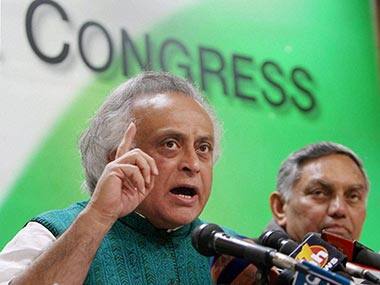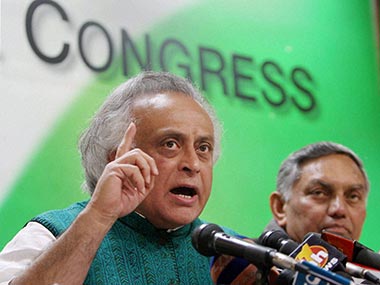Political gossip in Delhi has already caught up with former union minister Jairam Ramesh’s apparent generosity with his unsolicited advice to BJP ministers, earning for himself the new nickname of ‘ amicus curiae’ to the NDA government. And now, the former environment minister at whose doorstep the UPA itself placed some of the blame for stalled infrastructure projects, apparently believes that Prime Minister Narendra Modi could be “India’s Richard Nixon” through his handling of Pakistan and China. [caption id=“attachment_1558765” align=“alignleft” width=“380”]  Former Environment Minister Jairam Ramesh. PTI[/caption] In 1972, US president Nixon visited China in what was labelled a “week that changed the world”, involving a huge shift in the post-Cold War world. In an interview to The Eocnomic Times, Ramesh is quoted as saying: “Mr Modi in many ways is like Mr Nixon who opened China to America. Modi could become India’s Nixon when it comes to China or Pakistan… If we had invited Nawaz Sharif we would have been criticised for feeding him biriyani. But there is exchange of saris and shawls (now)… Had Dr Manmohan Singh done something pragmatic, BJP would have pounced on him. But if Mr Modi does something pragmatic we are not in a position to pounce on him.” He added, however, that there could soon be fissures visible in the new political dispensation at the centre. After all, the BJP’s ideological parent the RSS as well as its thinktanks recommend a much more hawkish position on Pakistan than the carefully constructed bonhomie of the swearing in ceremony. Ramesh said some of these contradictions will emerge eventually. Ramesh, who was candid enough to admit after the general election results that the Congress had been no match for Modi’s aggressive campaigning and that the BJP leader had in fact changed the very nature of campaigning, also told ET that the “chaiwalla comment” cost the Congress dearly. Incidentally, the man behind that comment, Congress leader Mani Shankar Aiyar who declared during campaigning that Modi could be given space to set up a tea stall, writes in The Indian Express that Indian insistence on a secular state leaves Pakistan’s identity incomplete. “… while the BJP/Sangh Parivar’s Hindutva agenda sparks a certain element of concern and apprehension in Pakistan, subconsciously, the emergence of a Hindu India would finally validate the case for a Muslim Pakistan,” he has said in an Op-Ed piece kicking off with his account of a “Pakistan-India bilateral” event in Pakistan that he attended. He sensed the Pakistans’ attitude to the Modi government as being “a perplexed welcome”, given that Pakistanis are usually better disposed to non-Congress governments for owing to the Muslim League-Congress rivalry in the run-up to Partition and the still surviving anti-Congress bent of the Pakistani mindset. And, contrary to Ramesh’s likening of MOdi to Nixon, Aiyar has said the expectations of a breakthrough in Indo-Pak talks have been hit by what Pakistanis believe is a bad beginning. While the swearing in cheer was well received as were the follow-up letters and exchanges of gifts, the Pakistani media have portrayed the Indian bureaucracy’s press briefing of the Modi-Sharif talks as one-sided. It appeared to them that the Indian side wanted reporters to believe that Sharif had been “given a wigging by Modi, to which he failed to adequately respond”. In any case, Ramesh’s comparison of MOdi to Nixon is not novel. Last month, a Chinese government thinktank reportedly said Modi could be India’s Nixon who would expand commercial links between India and China. A report in The Times of India quoted Chinese government expert with the Shanghai Institute for International Practices Liu Zongyi as saying, “As a right-winger in Indian politics, Modi is more likely to become India’s ‘Nixon’ who will further propel the China-India relationship… Modi’s governance style and philosophy are very close to Chinese practices.”
Former union minister Jairam Ramesh has said Modi has a flexibility that his predecessor did not have.
Advertisement
End of Article


)
)
)
)
)
)
)
)
)



